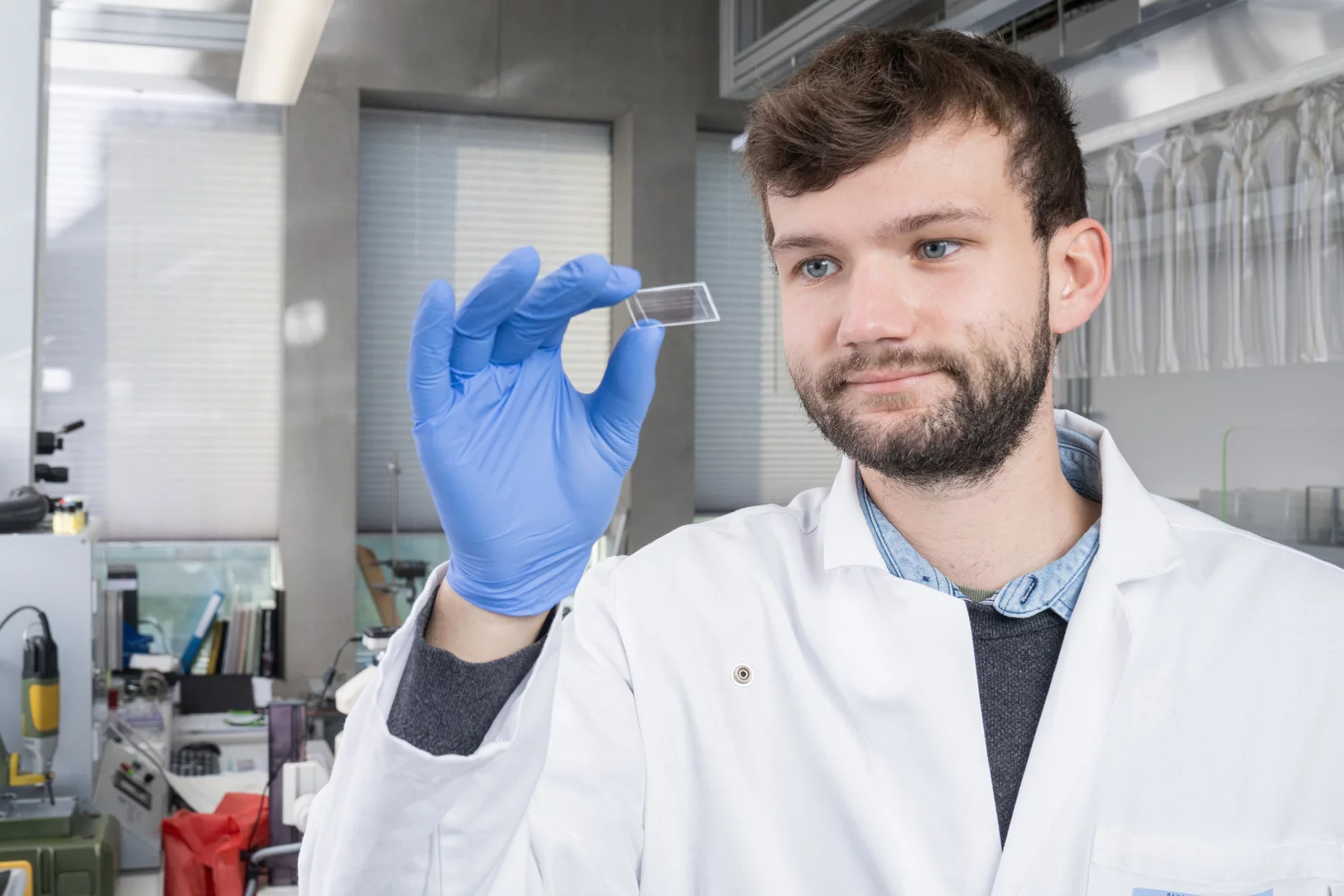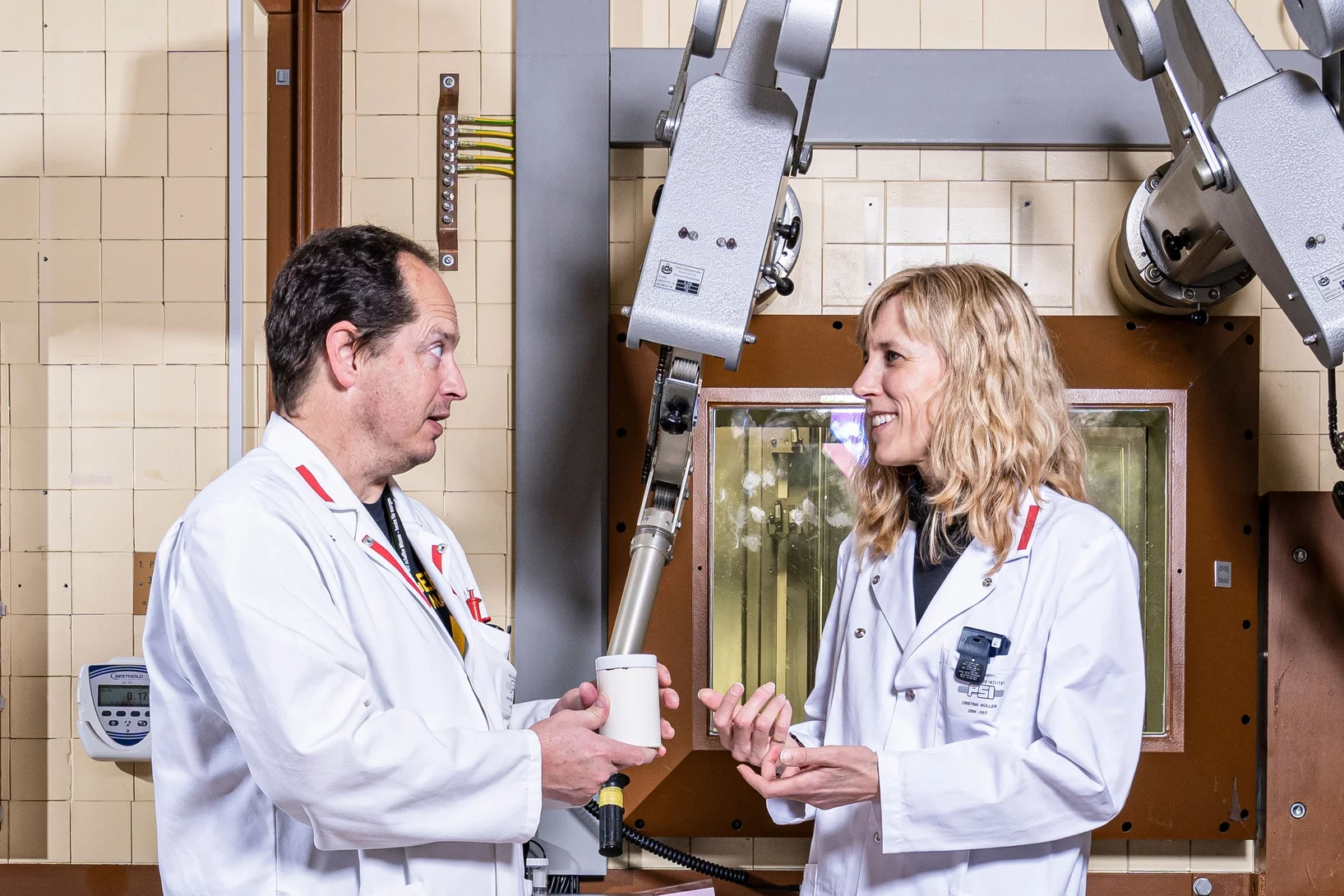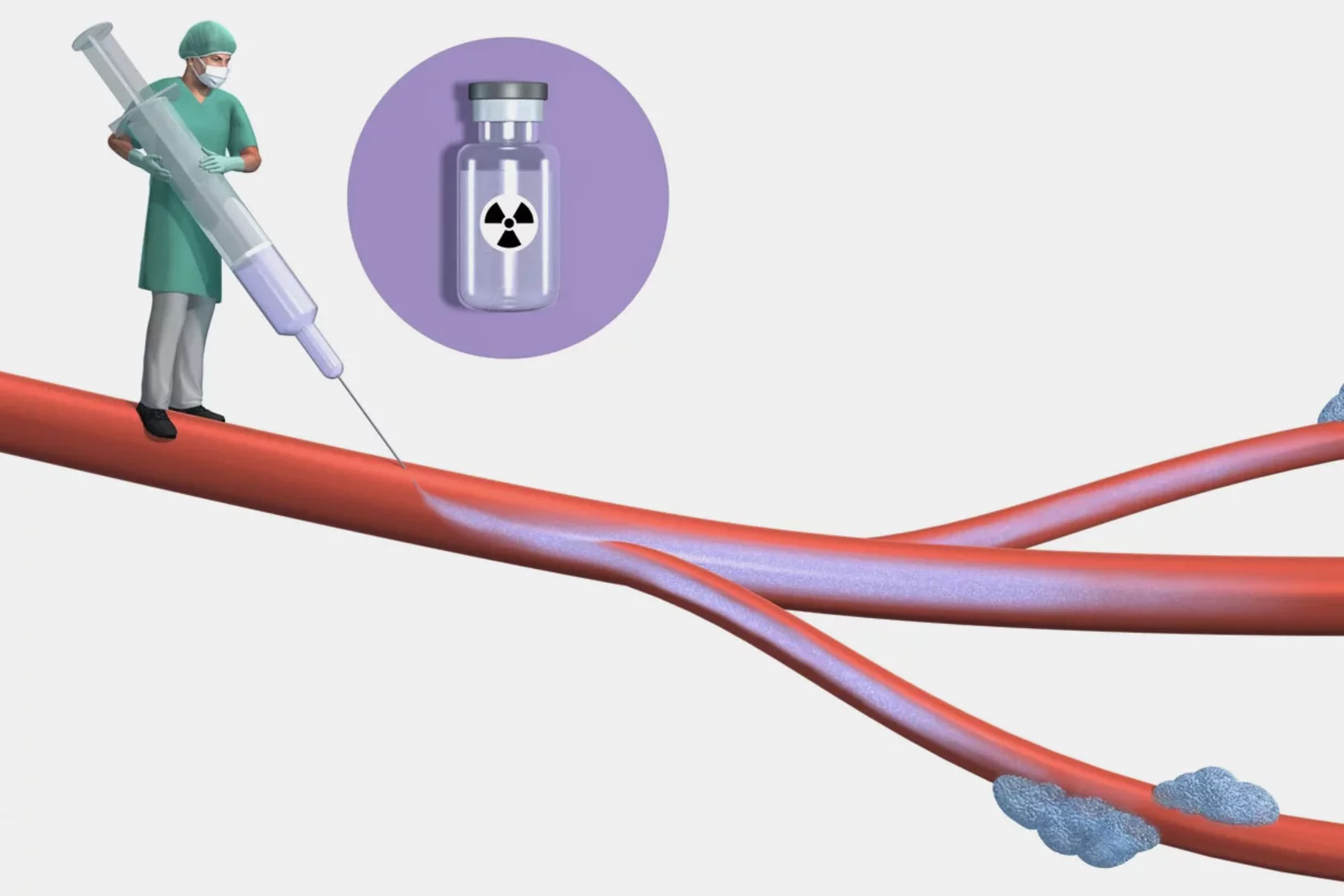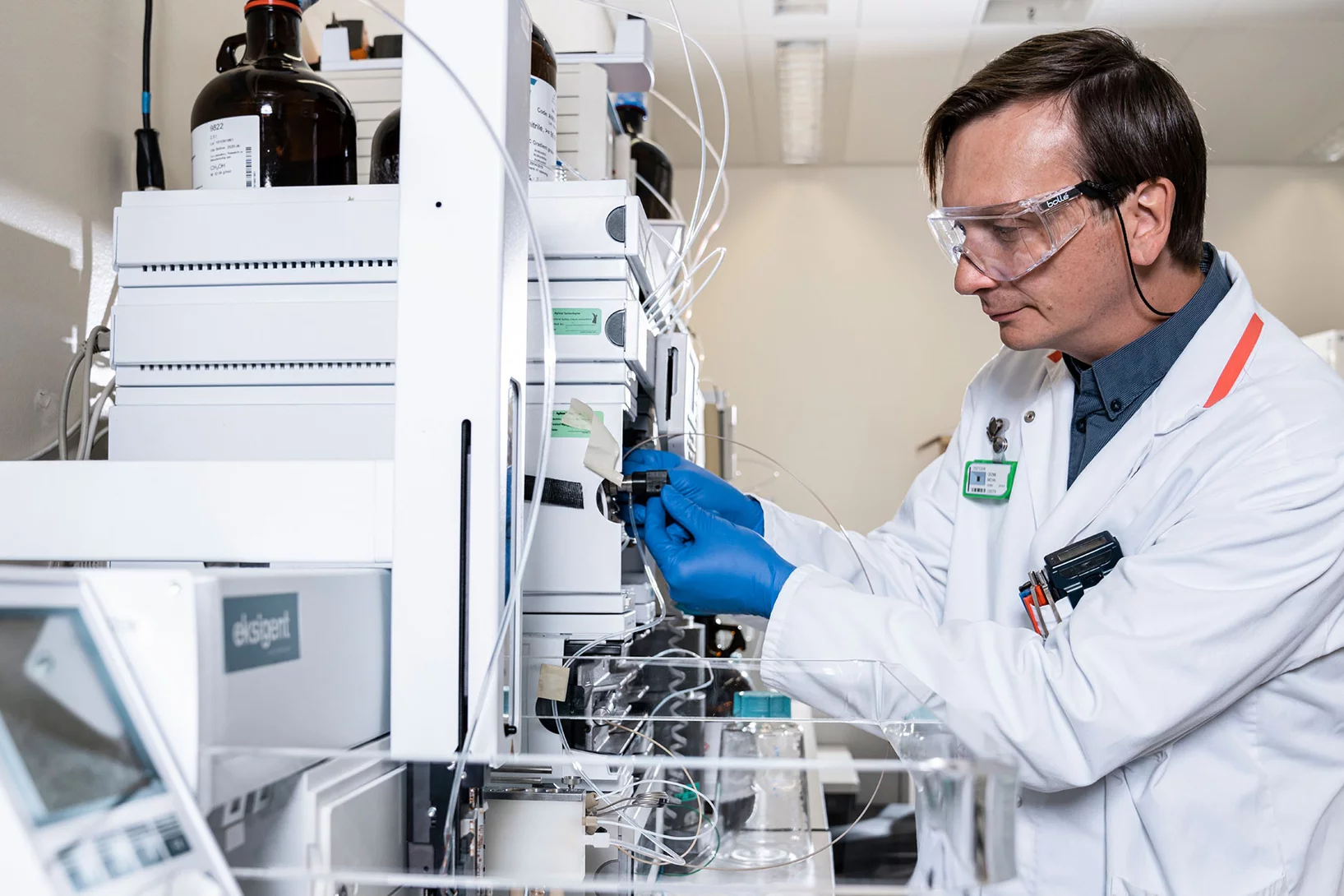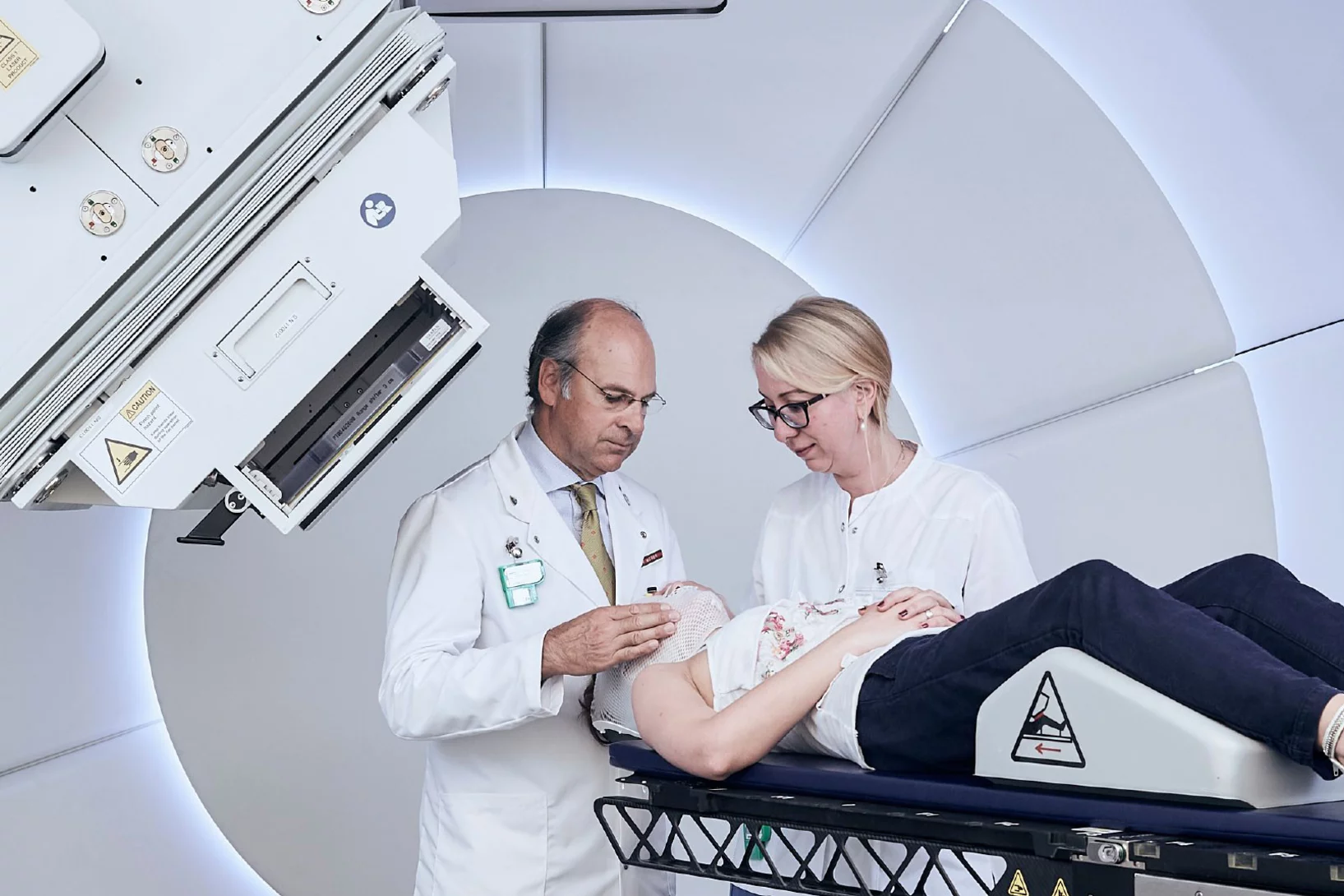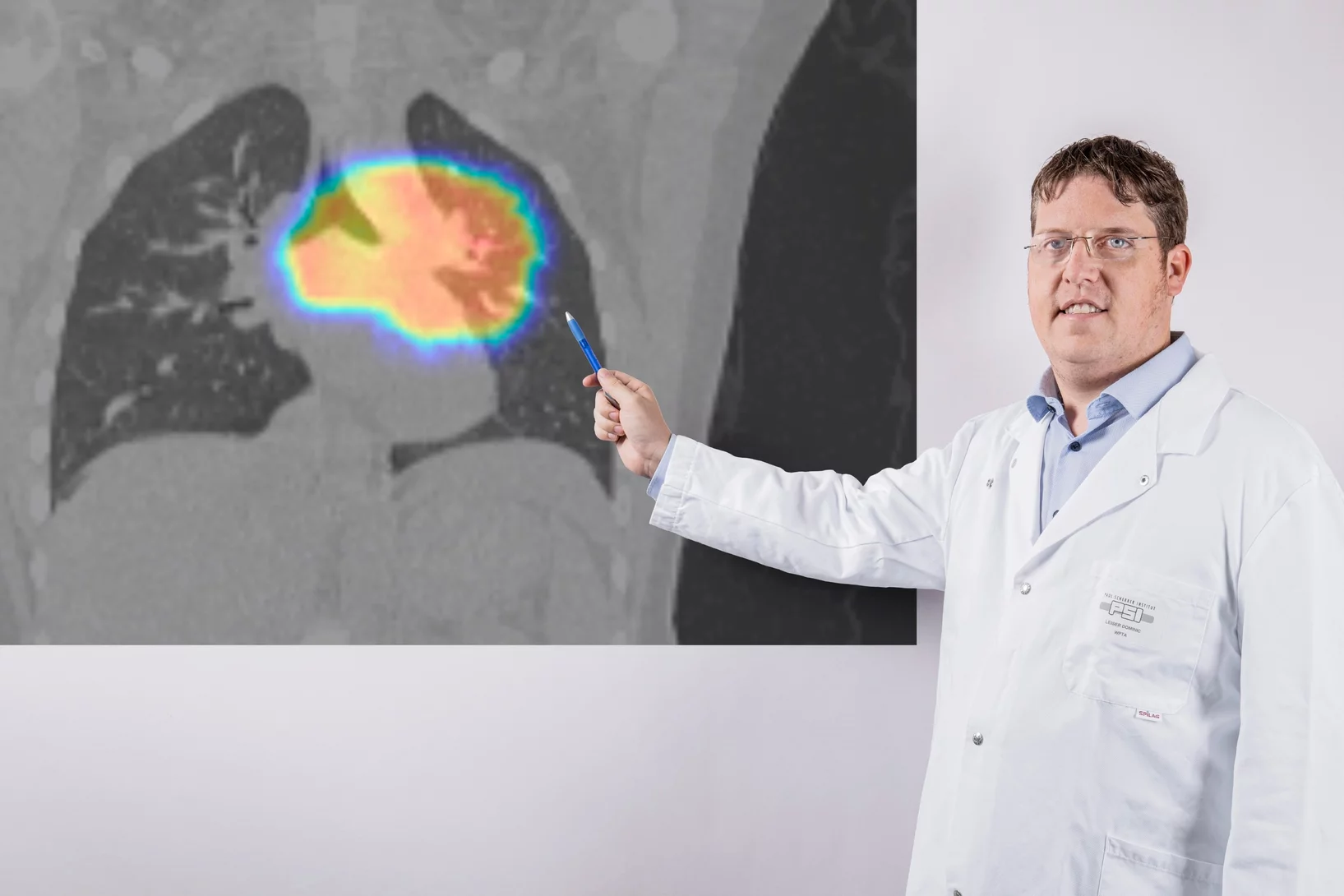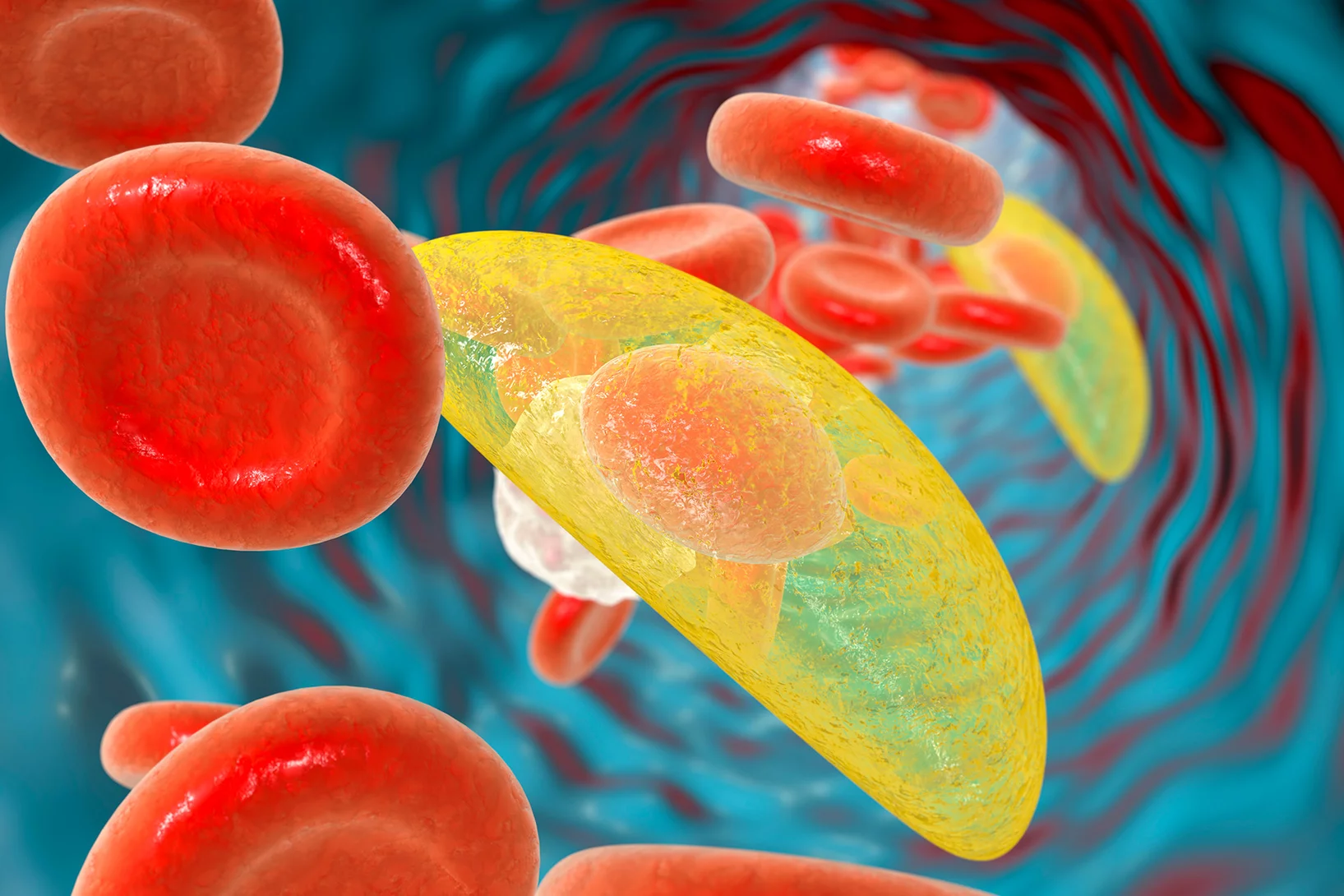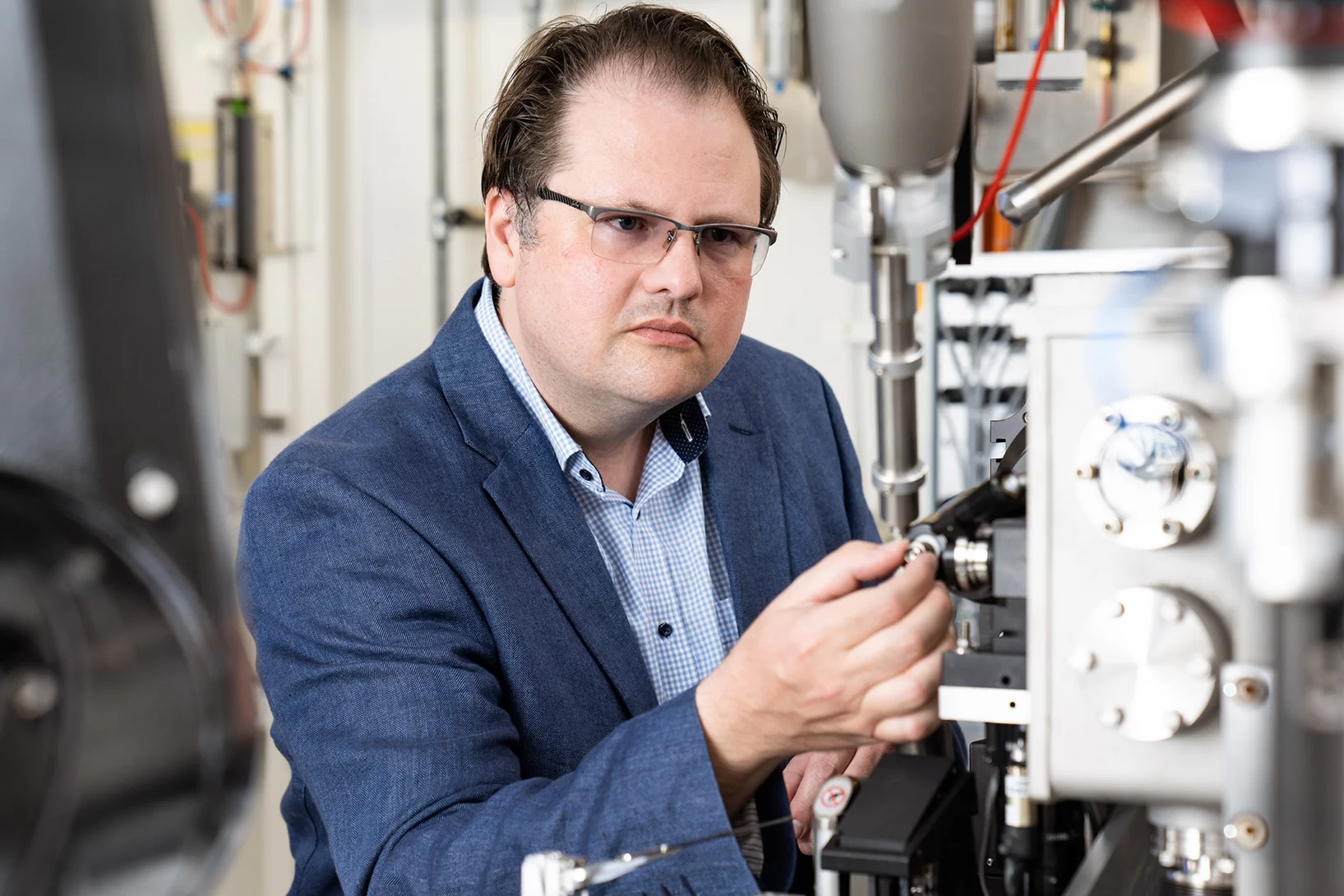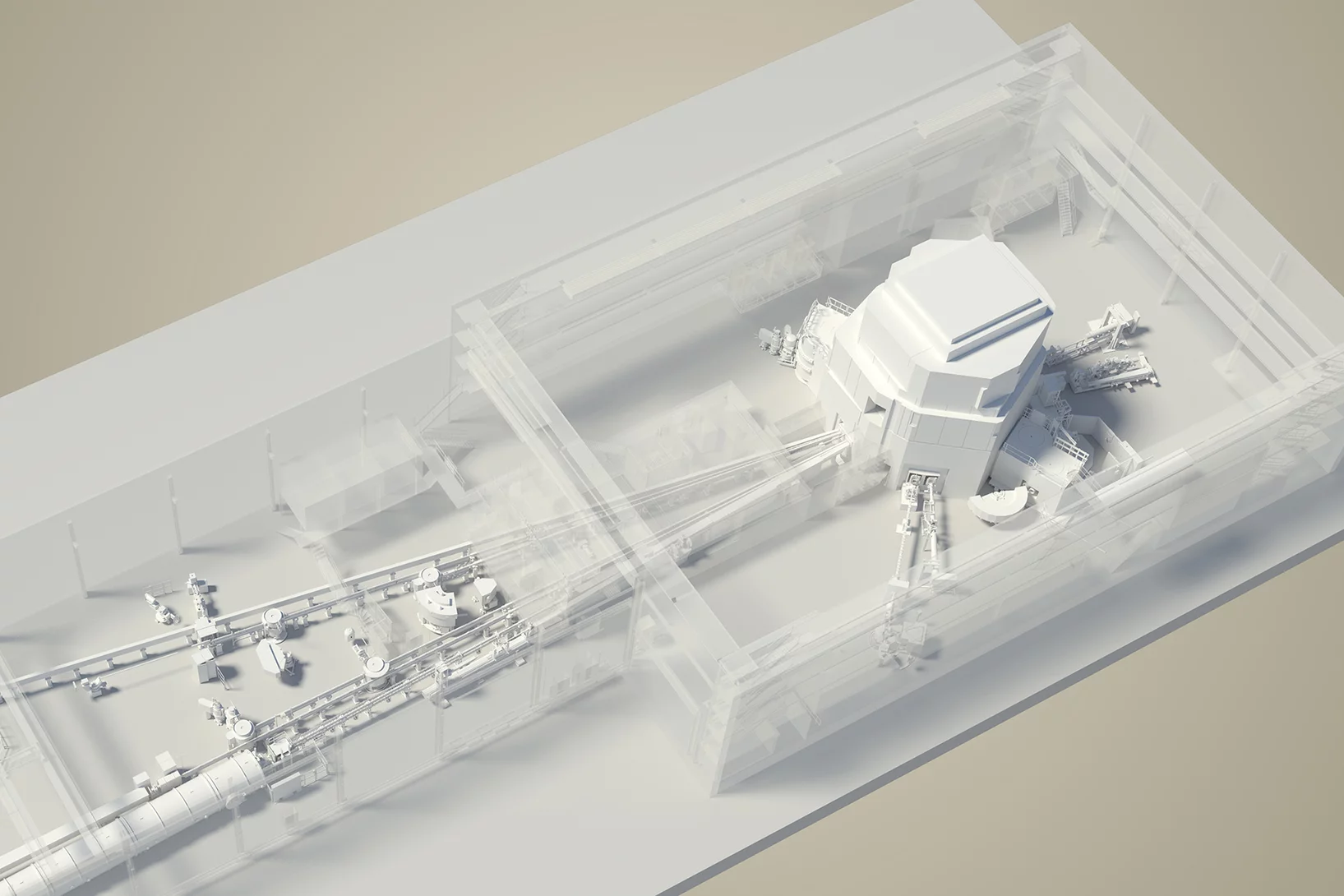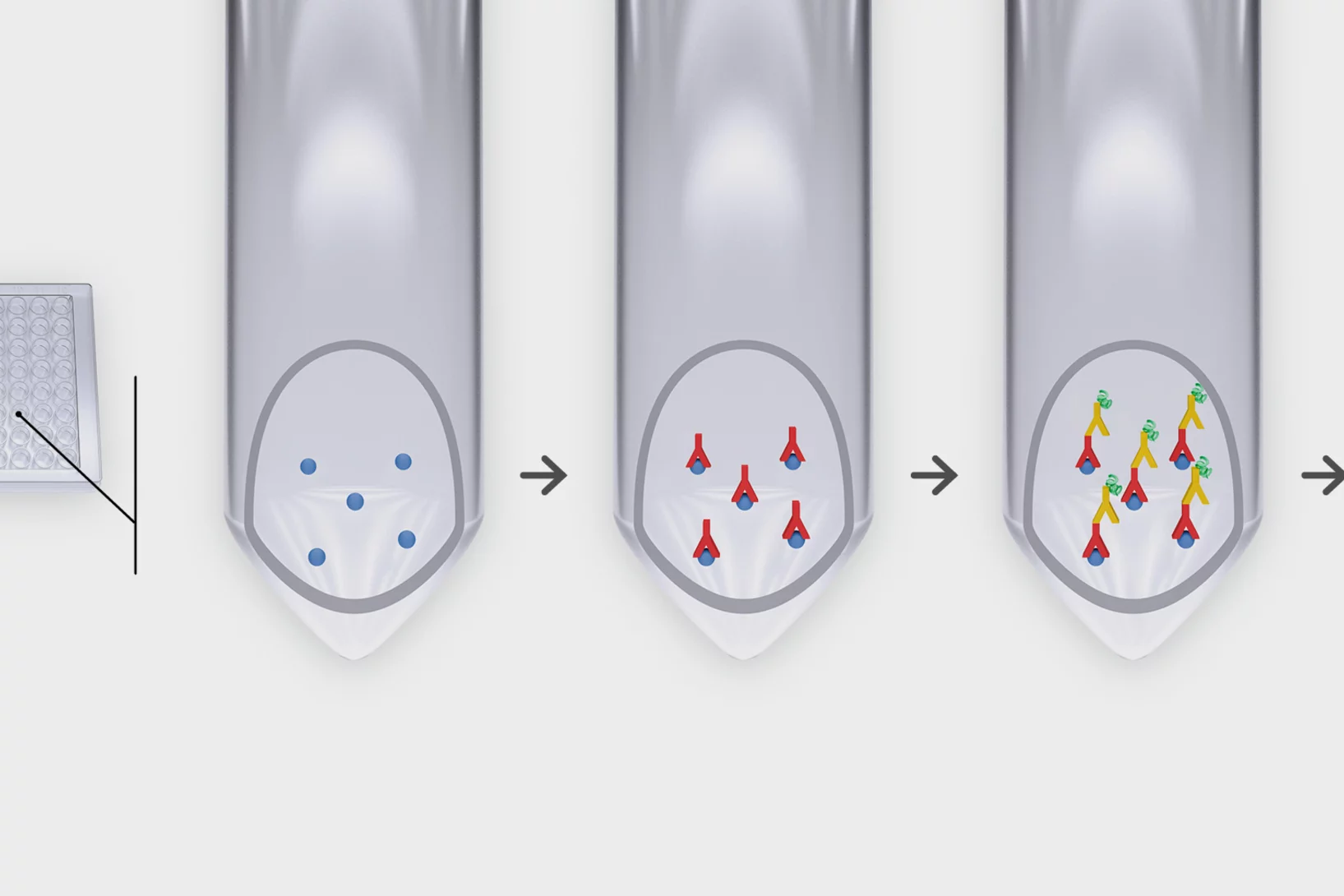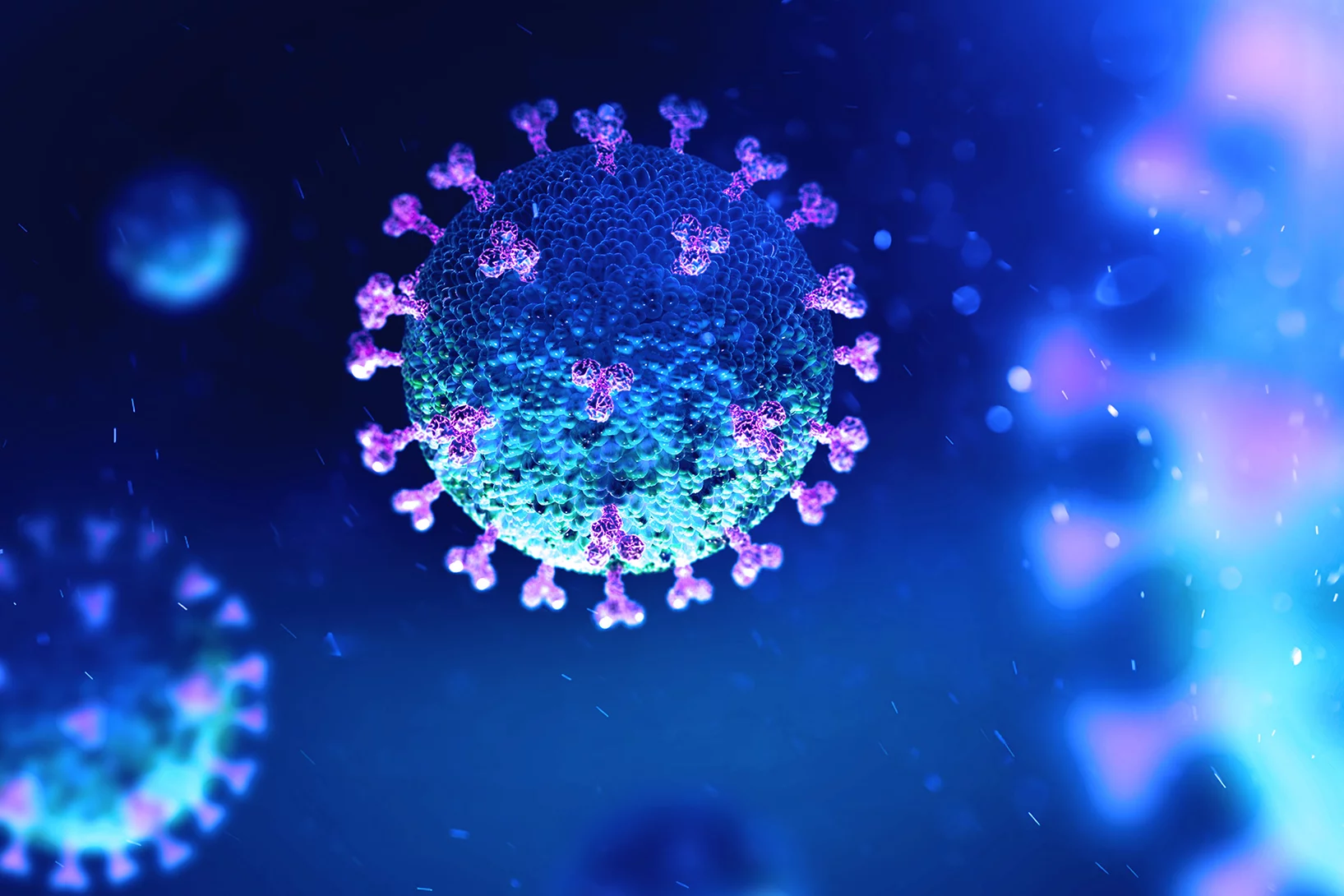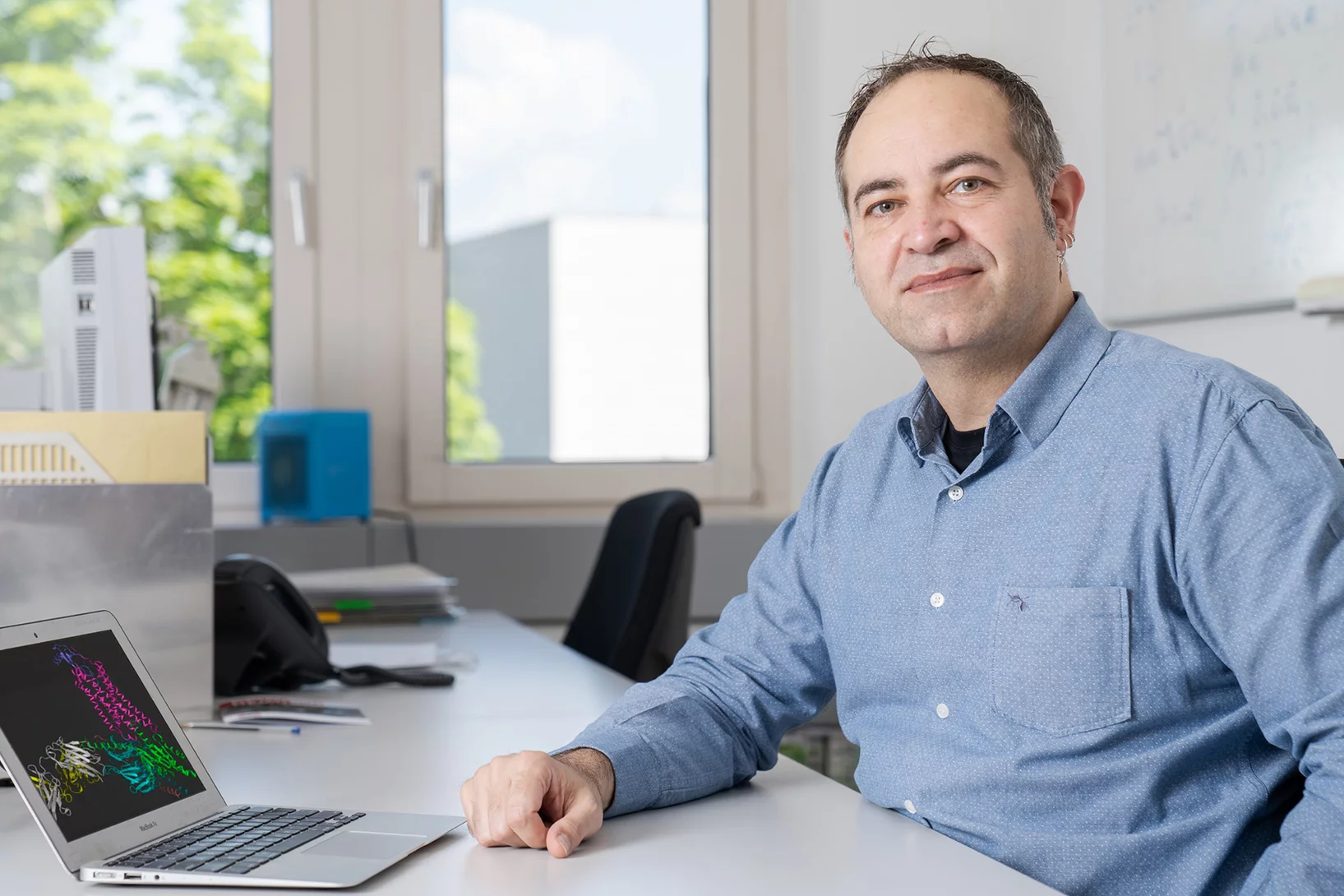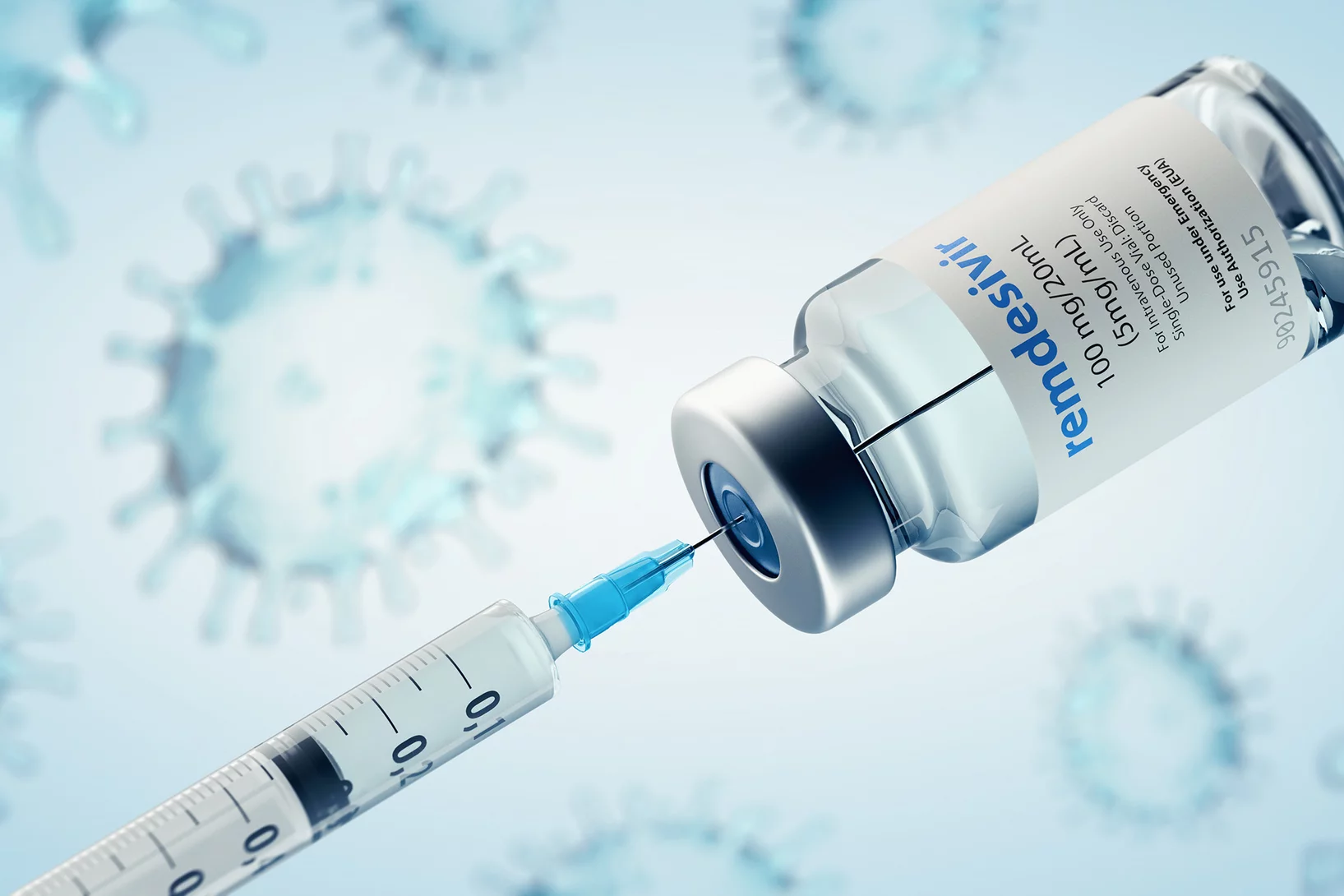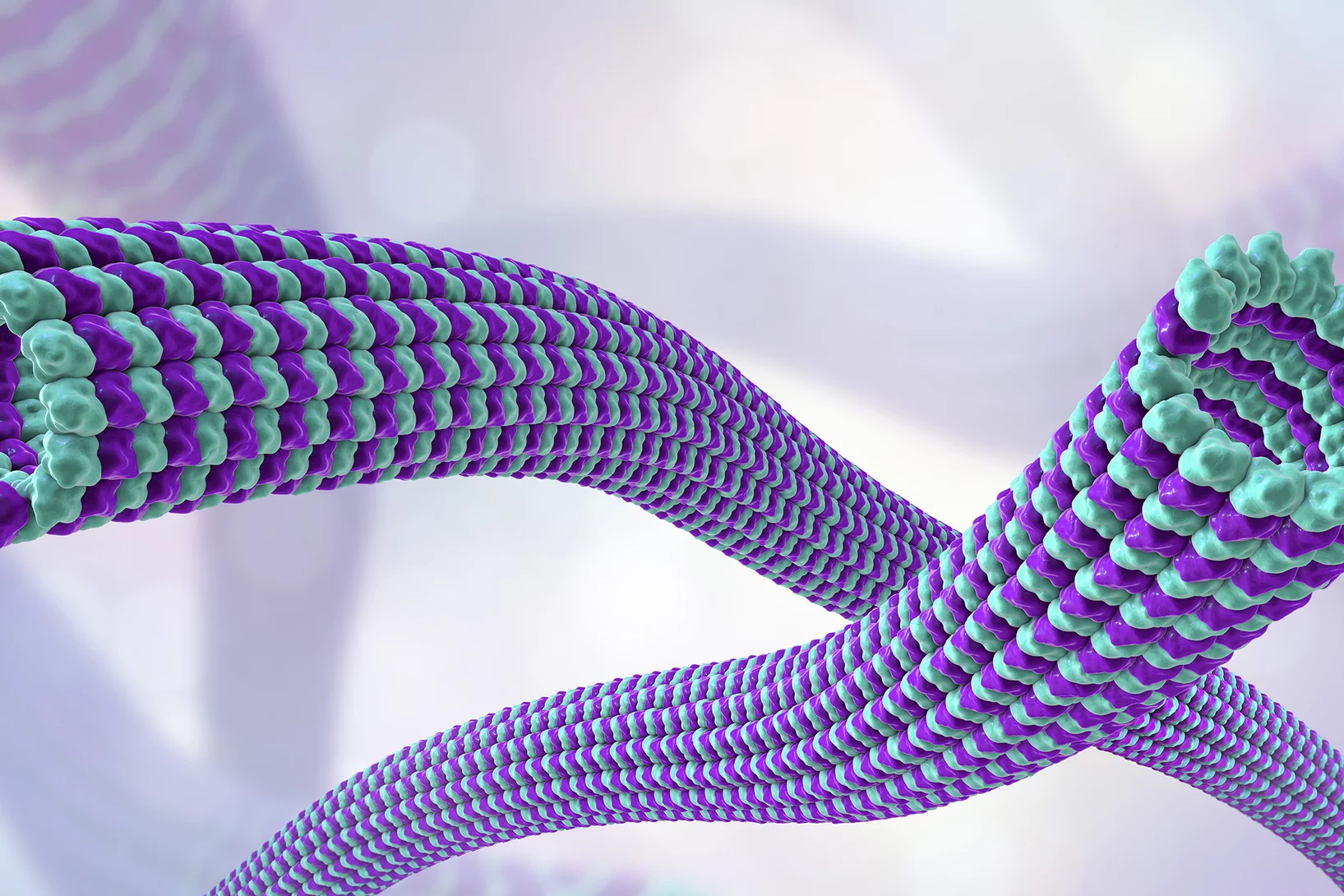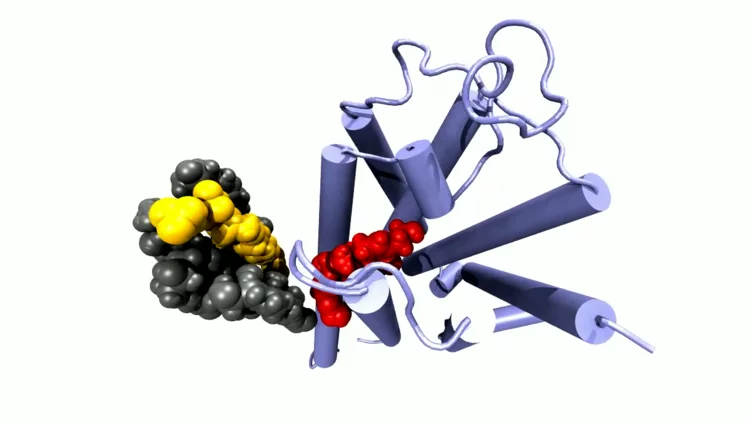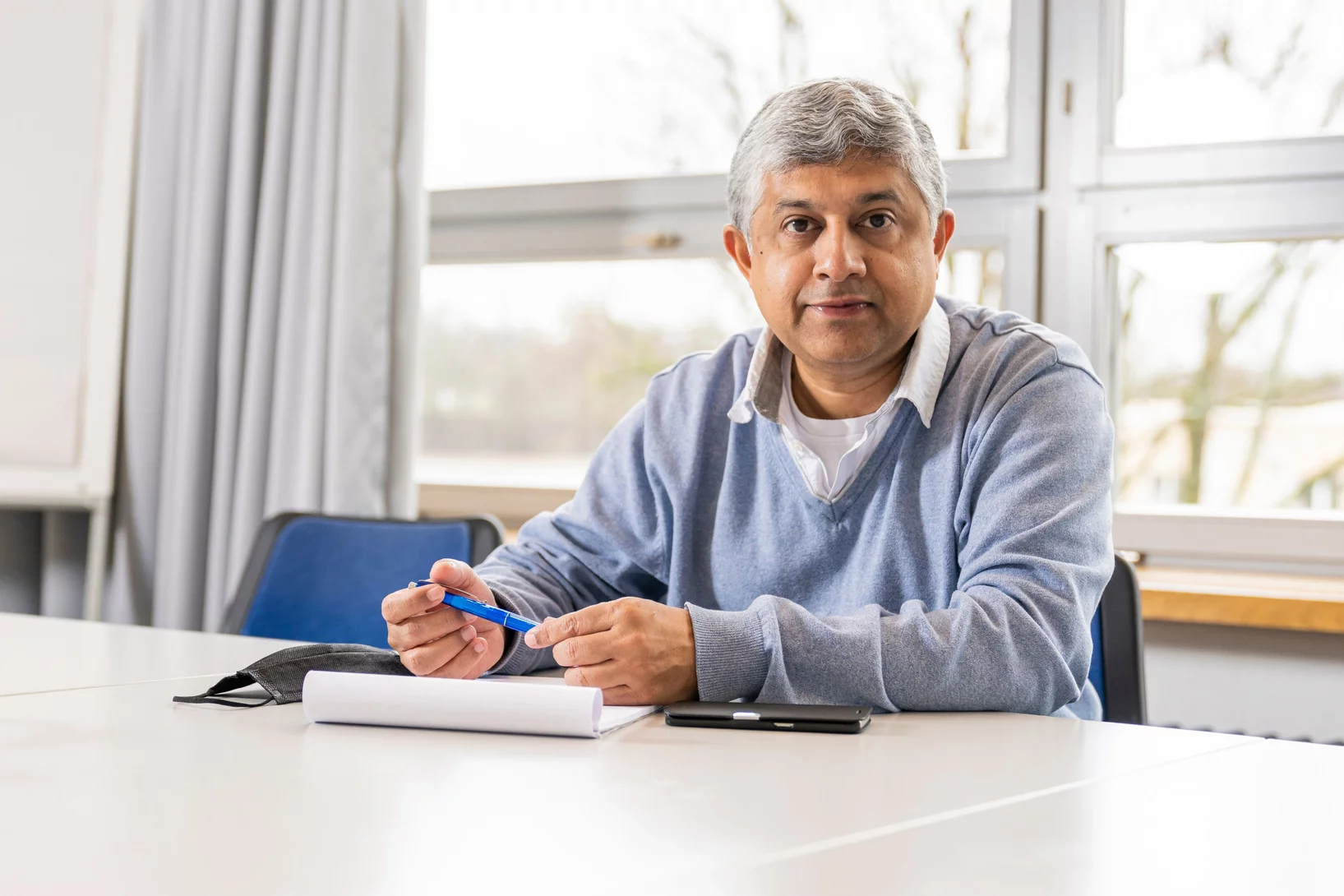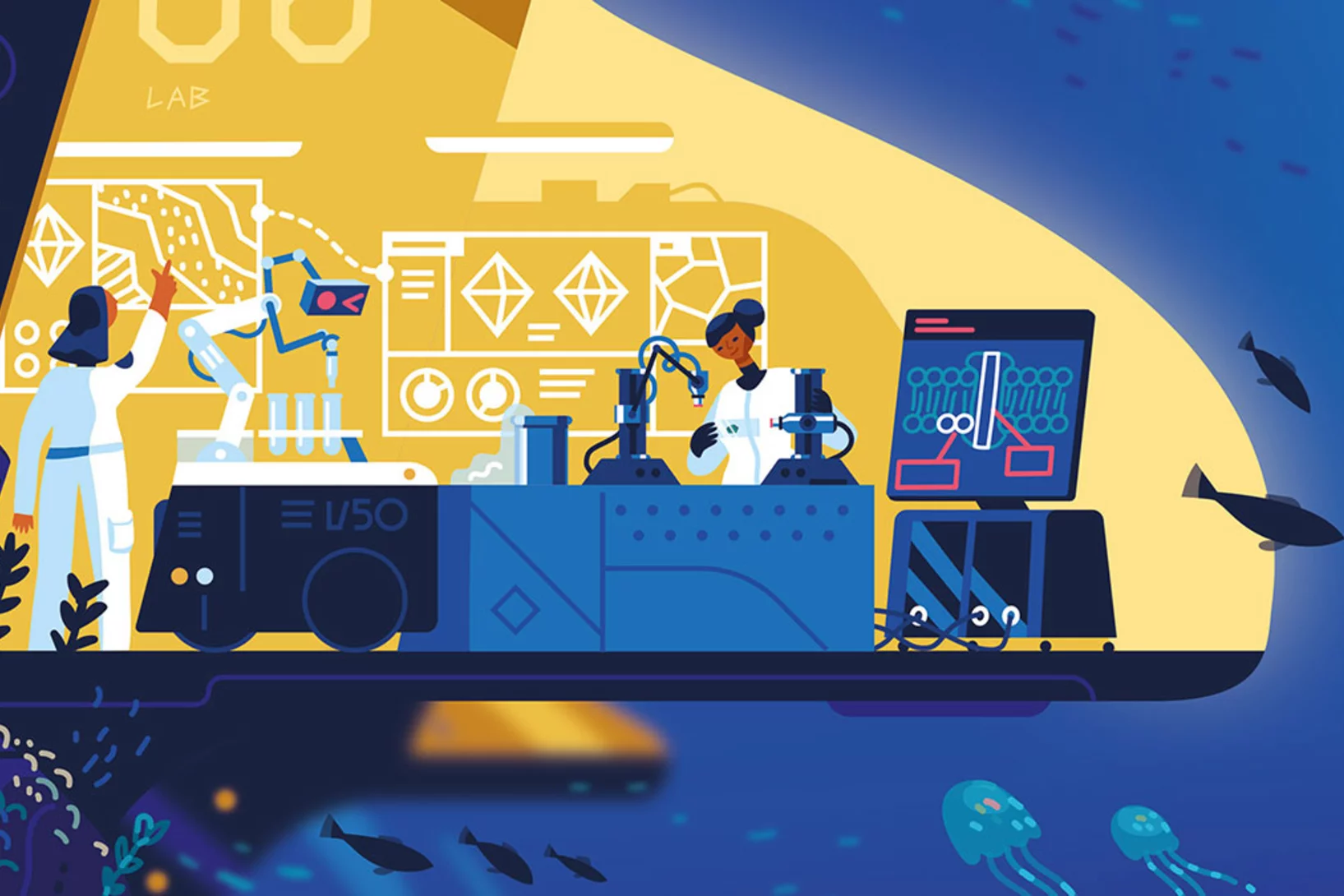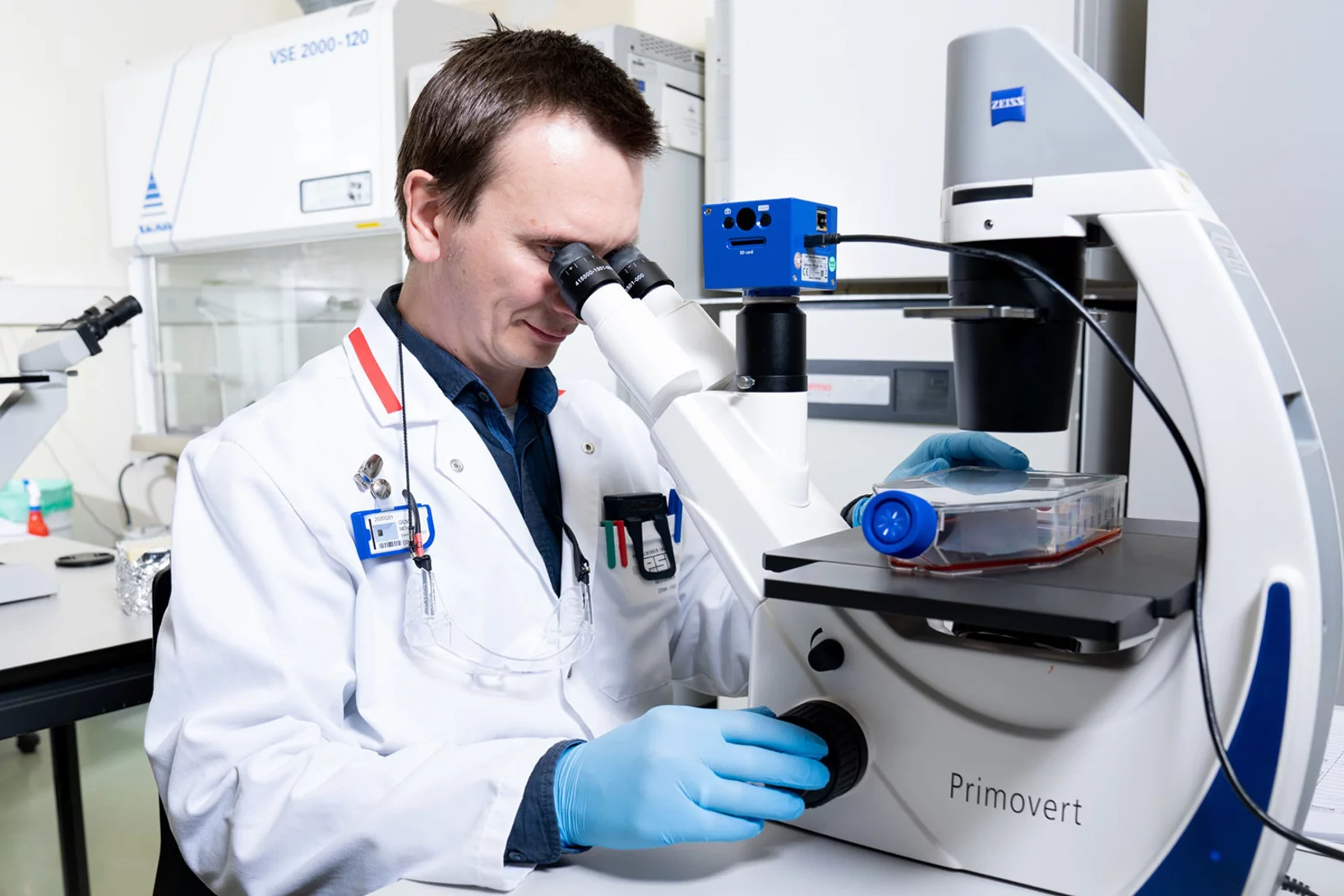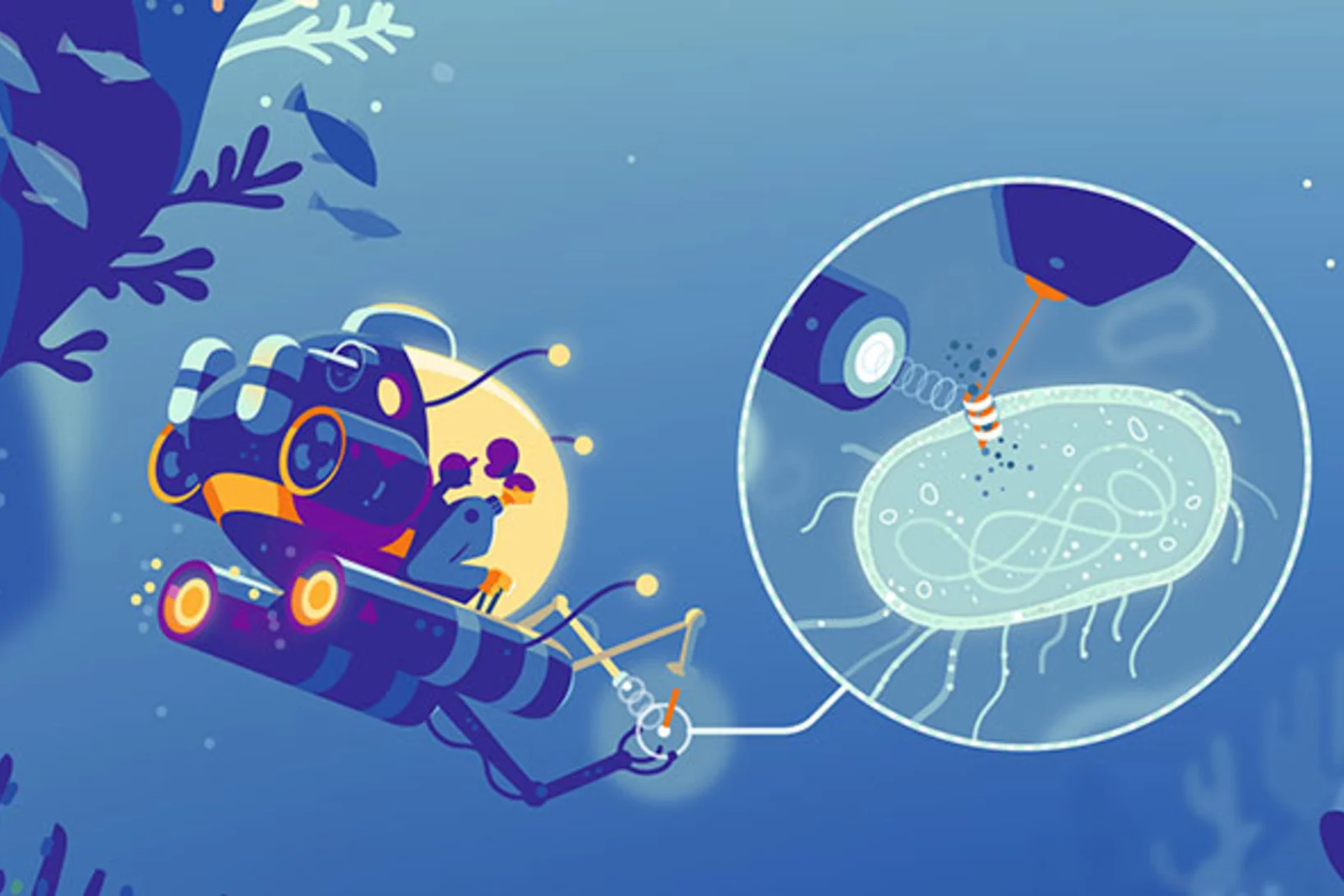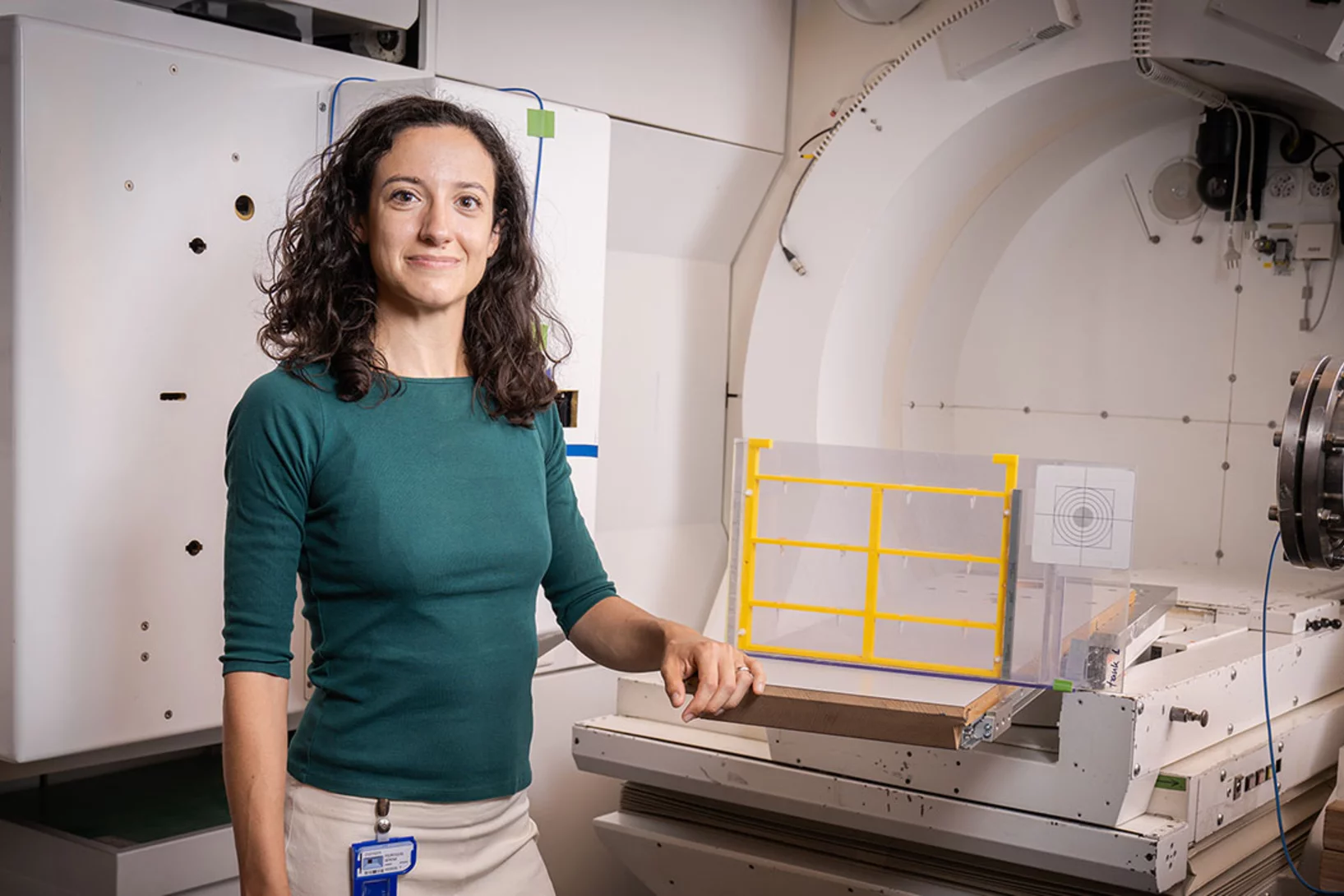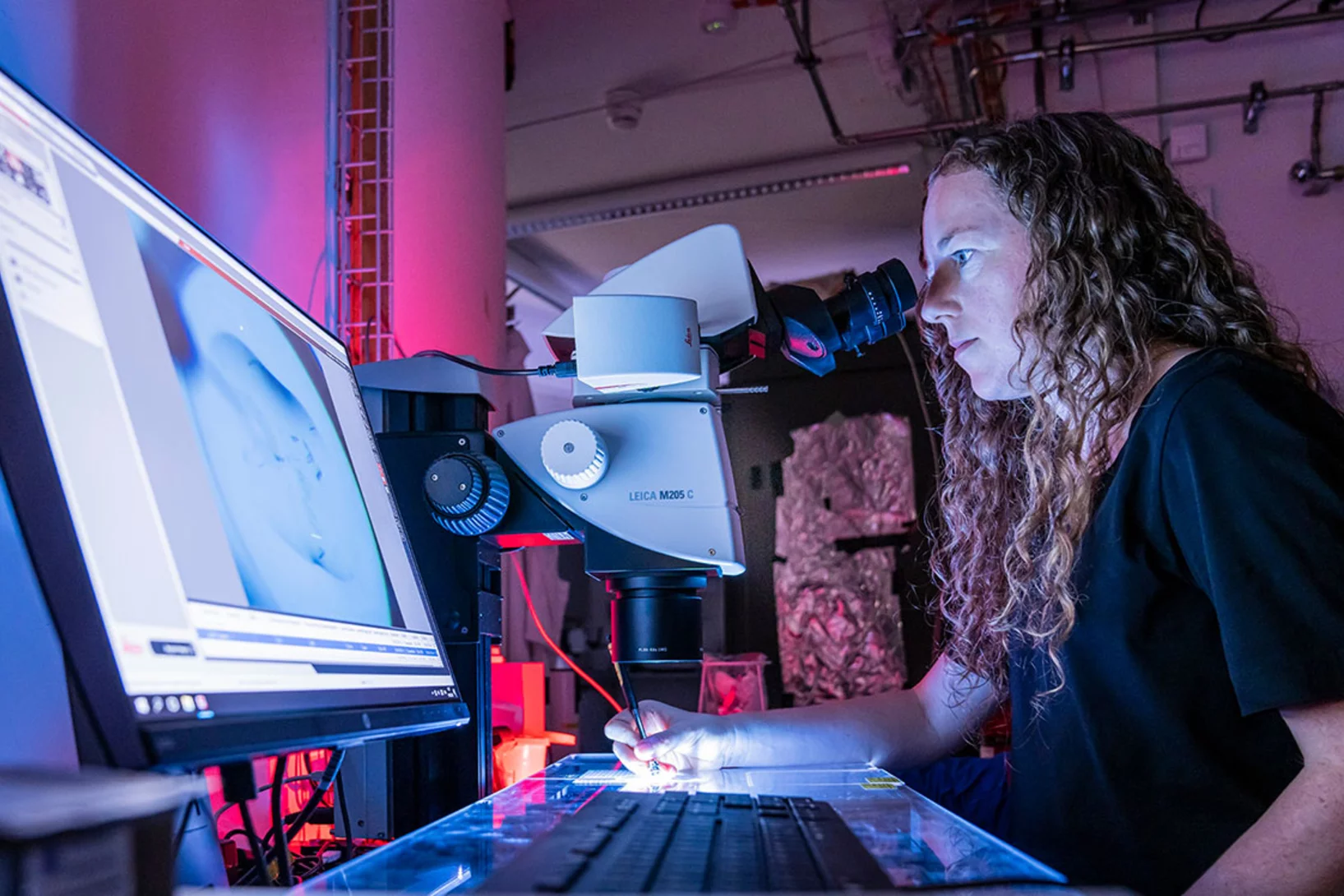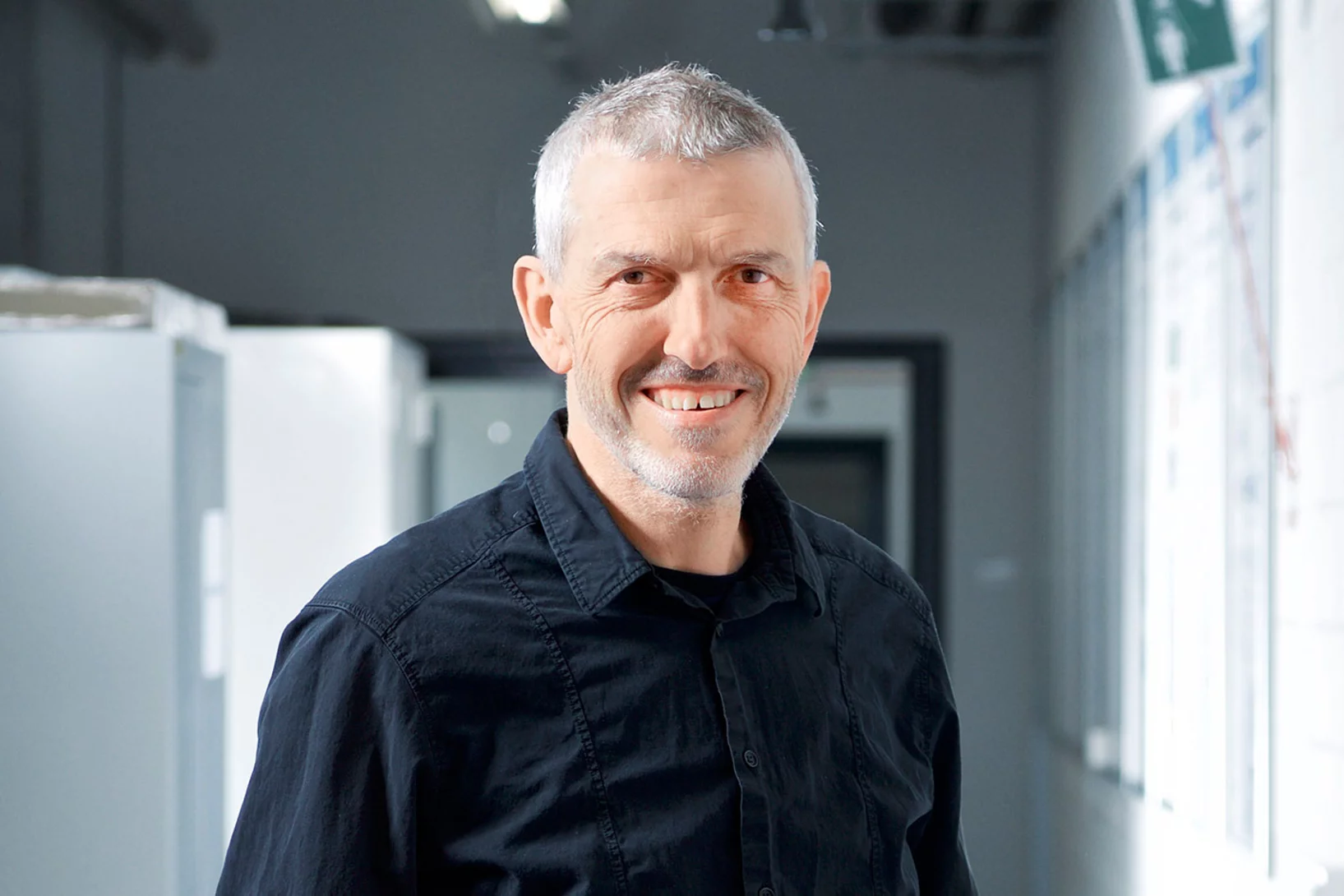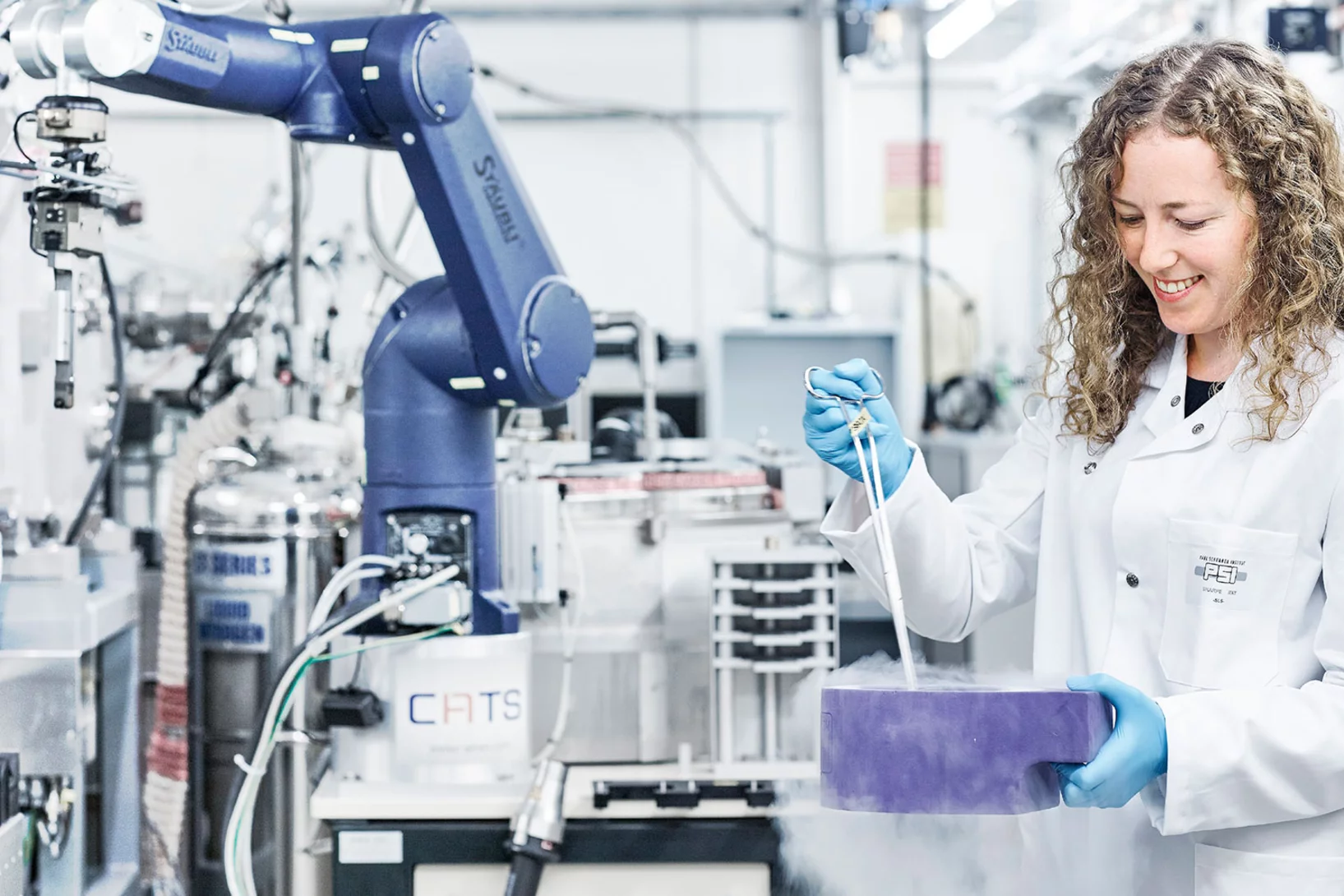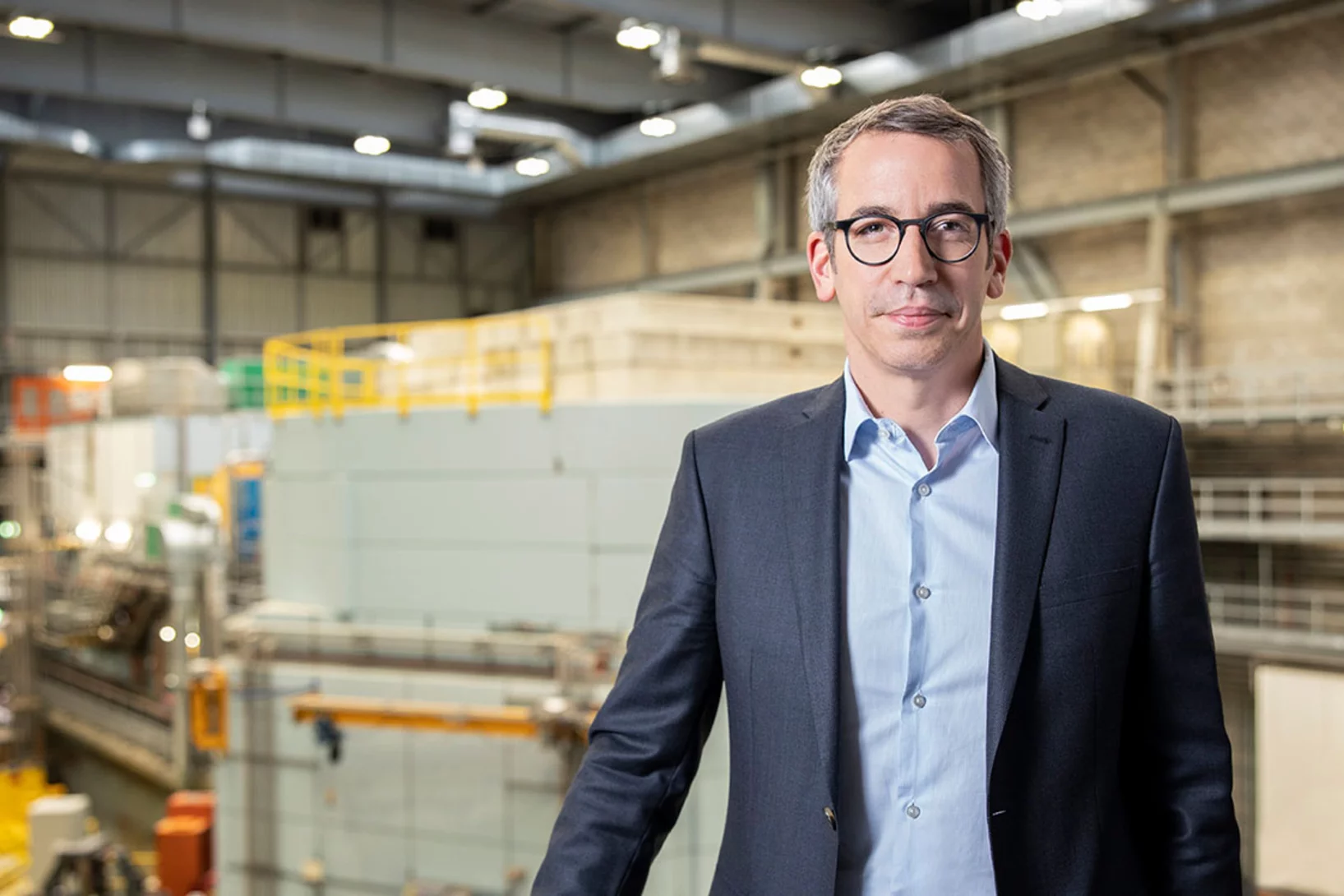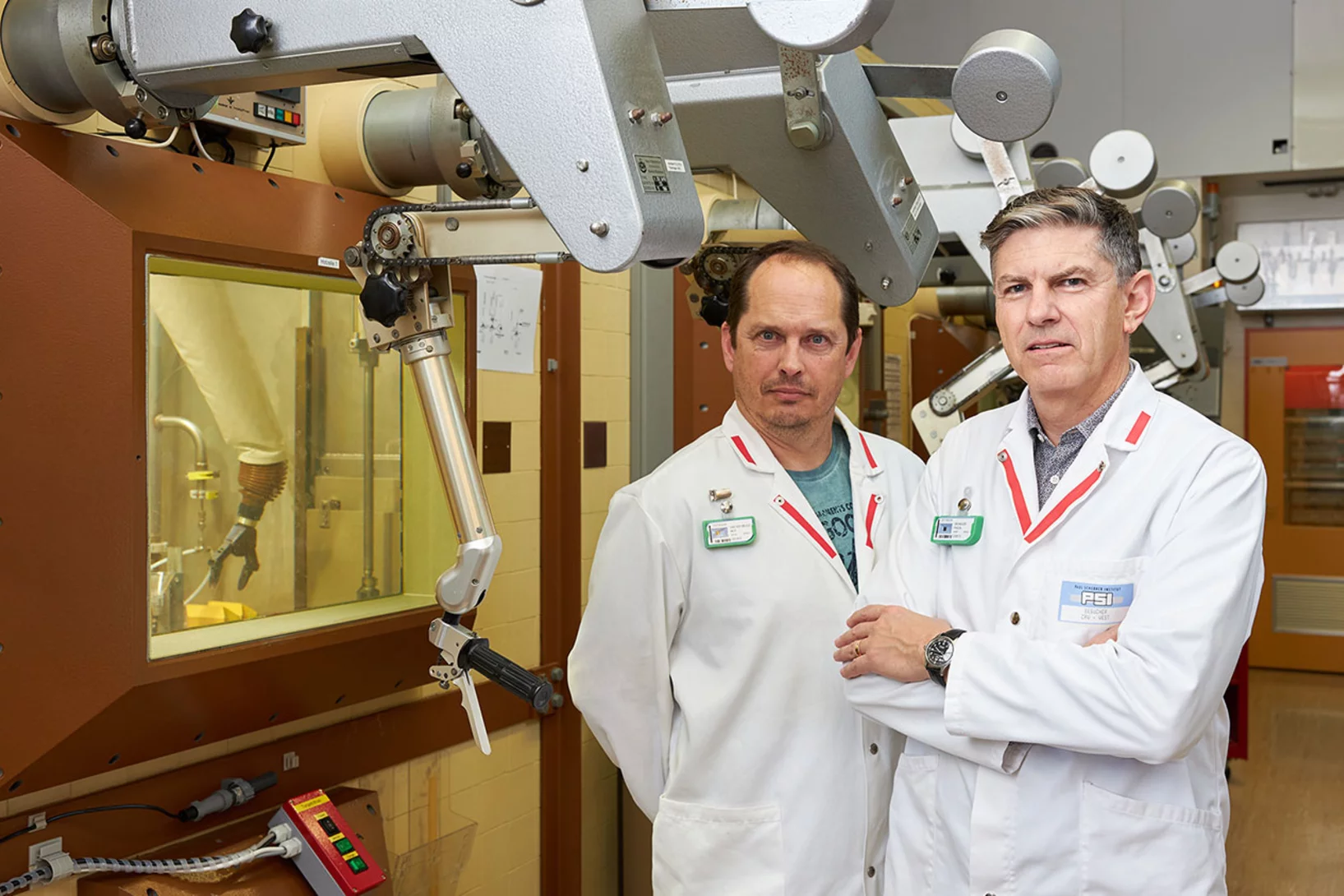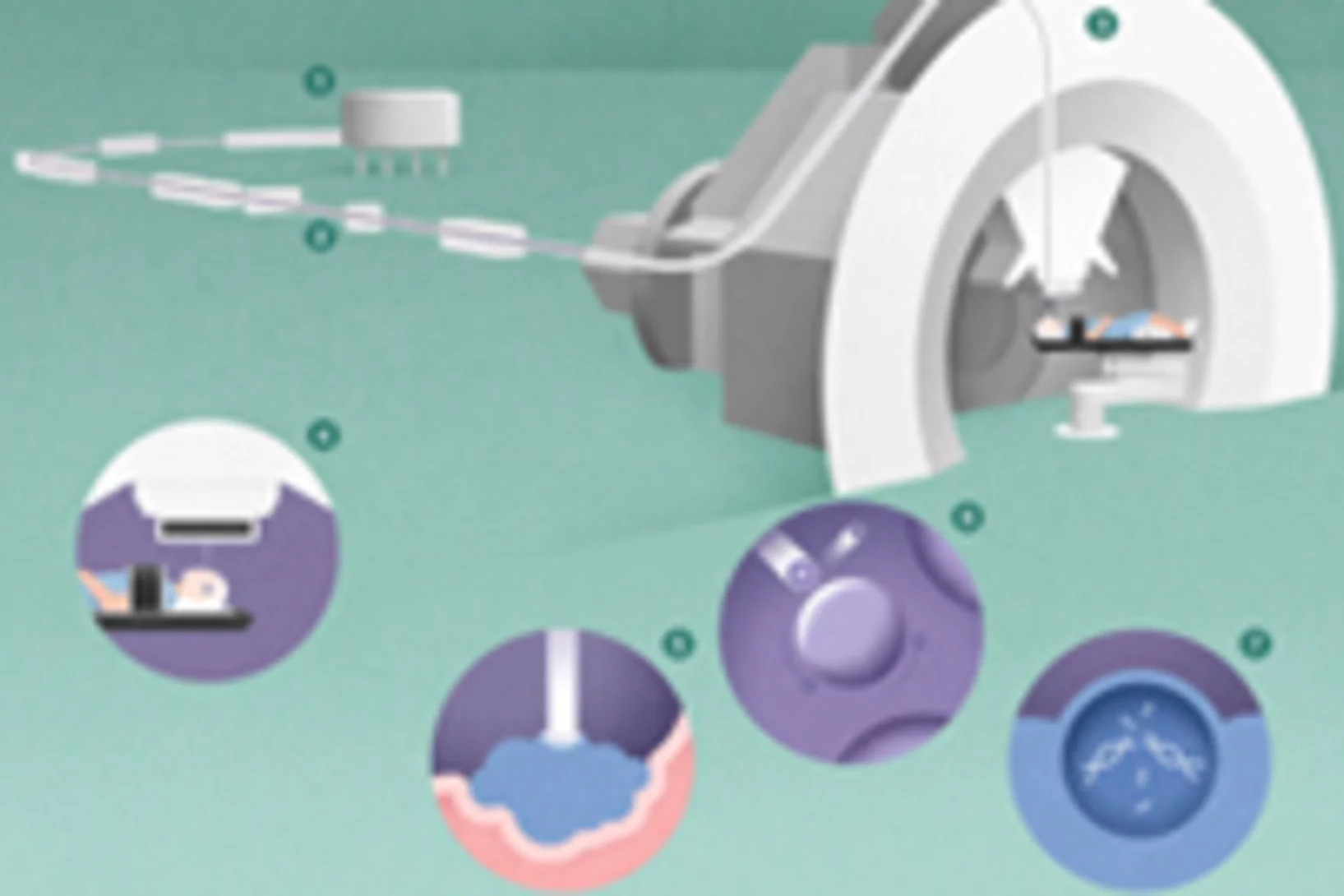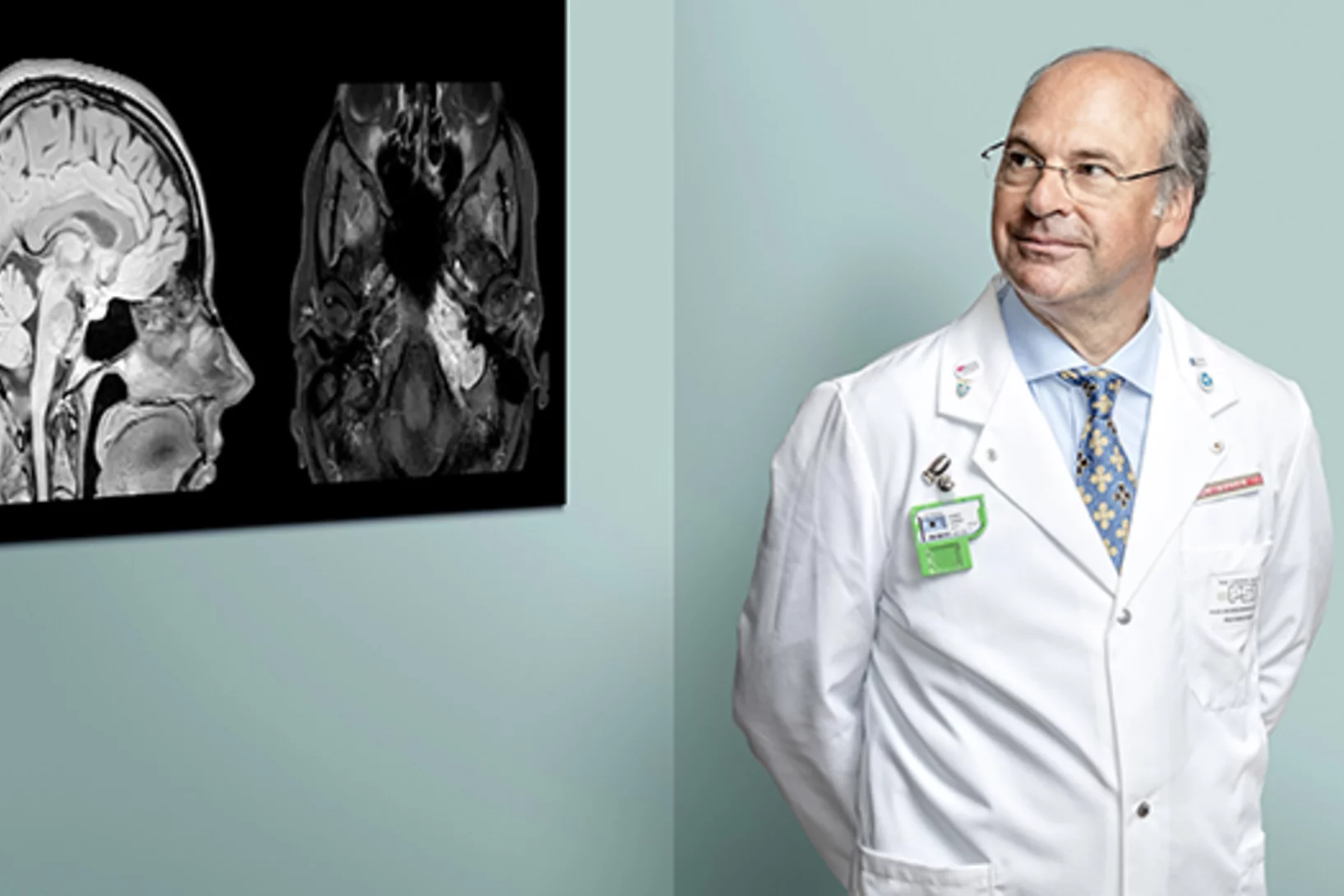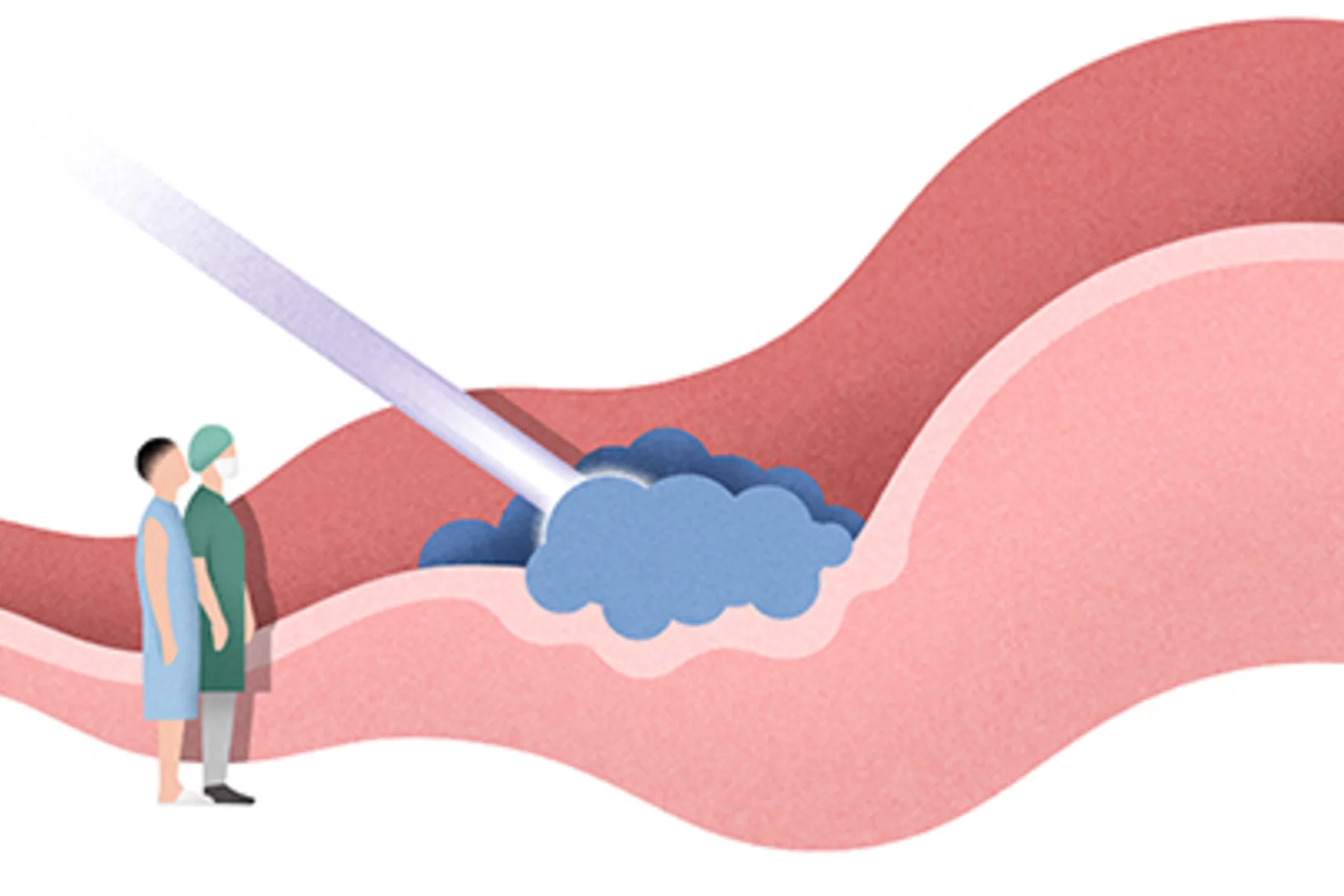In the area of Health Innovation, several research groups at PSI are engaged in the study of fundamental questions regarding biology and cancer therapy. For example, they explore the structure of proteins – extremely complex biomolecules that are responsible for many different functions in organisms. Using PSI’s large research facilities, scientists also explore processes in biological tissue in order to fully understand their function and the development of specific diseases or deterioration processes. The ultimate goal is to find medicines that allow people to live as healthy a life as possible.
Patients with specific types of cancer are treated at the proton therapy facility on the PSI campus. Radiopharmaceuticals provide cancer treatments for very small tumours distributed throughout the body.
Find out more at: Overview Health Innovation
New, better coronavirus rapid test
The test identifies different virus variants and improves disease prognosis.
The power of protons
This gallery presents five people who have been treated at the PSI's Center for Proton Therapy.
Terbium Triumph
Bench-to-bedside successes: Fruitful collaborations at PSI’s Center for Radiopharmaceutical Sciences make bringing Terbium-161 to the clinic a reality.
KSB and PSI forge a common research path
Kantonsspital Baden and the Paul Scherrer Institute PSI have signed a cooperation agreement.
Effective combination cancer treatment
Combining two chemotherapeutic drugs inhibits tumour growth.
Proton therapy: a success story that started 25 years ago
25 November 1996: a world first for PSI’s Center for Proton Therapy in treating a cancer patient using the spot-scanning technique.
A first for Switzerland: proton therapy to treat lung cancer
On 9 November 2021 a lung cancer patient was given proton therapy at the Paul Scherrer Institute PSI for the first time in Switzerland.
New active agent against parasites
PSI researchers identify potential active agent against several unicellular parasites – including the pathogens that cause malaria and toxoplasmosis.
Protein distancing
PSI researchers have developed a new method to attach proteins to the surface of virus-like particles.
Novel and emerging medical radionuclides
Better treatment for disseminated cancer.
Tracking down unreported Coronavirus cases
The University Hospital of Zurich uses proteins made at PSI for Europe’s first large-scale serology study on coronavirus prevalence in Switzerland.
PSI: advancing in the fight against Covid-19
Crystal structure analysis, computer models, cell cultures – to pursue research on Sars-CoV-2, PSI is exploring many avenues. An overview.
How immune cells are activated
A research consortium has deciphered the mechanism of CCR5 receptor activation, providing insights for the development of CCR5 drug antagonists for AIDS, cancer, and inflammatory diseases.
How remdesivir works against the coronavirus
Researchers at Goethe University Frankfurt, in cooperation with the PSI have probably discovered another, previously unknown mechanism of action of the antiviral remdesivir.
Cell cytoskeleton as target for new active agents
Using a combination of computer simulations and laboratory experiments, PSI researchers have identified new binding sites for active agents on the vital protein tubulin.
Watching receptor proteins changing shape
In our bodies, G protein-coupled receptors mediate countless processes. PSI researcher Ramon Guixà talks about how he brings those receptor molecules to life on the computer screen.
"Ultimately, we aim to understand how diseases start in single cells"
Imaging and sequencing techniques combined with machine learning offer researchers countless opportunities to look inside cells with greater precision than ever before. G.V. Shivashankar, lab head at PSI, describes how such information can be used to find answers to pressing questions.
Wait and see, and grow crystals
At PSI, researchers decipher the structure of the proteins in bacteria and viruses. This knowledge can aid, for example, in the development of drugs against infectious diseases. But before the investigation can begin, an extremely tricky problem has to be solved: the crystallisation of the molecules.
More effective treatment of thyroid cancer
PSI researchers have found a more effective treatment for a form of thyroid cancer – and with fewer side effects – by increasing the uptake of the cancer drug in tumour cells. The results have been published in the medical journal Theranostics.
Mites in the spotlight
The world of microbes and viruses is extremely old and exceedingly diverse. With the large research facilities at PSI, researchers are peering deep inside this alien cosmos and investigating, above all, the proteins of these exotic beings.
New technique for ultrafast tumour therapy
For the first time, researchers at the Centre for Proton Therapy at PSI have tested ultrafast, high-dose irradiation with protons. The new, experimental FLASH technique could revolutionise radiation therapy for cancer.
A question of binding
At PSI, researchers are screening molecule fragments to see if these bind to important proteins of the coronavirus SARS-CoV-2 and thus have the potential to disable it. They are hoping the many individual pieces of information will yield an answer as to what an effective drug might look like.
Coronavirus advice: Ventilate, ventilate, ventilate!
SARS-CoV-2 might be transmitted via aerosols, that is, through the air. Researchers point this out in the journal Clinical Infectious Diseases. André Prévôt from PSI co-signed the publication. In this interview, he explains which precautionary measures he recommends.
Covid-19 research: Anti-viral strategy with double effect
Frankfurt scientists identify a possible weakness of the SARS-CoV-2 virus. They carried out part of their measurements at PSI's Swiss Light Source SLS. The research results are published this week in the scientific journal Nature.
Brilliant medicines
In the service of health, scientists at the Paul Scherrer Institute PSI work with radionuclides and develop agents to treat cancer and to detect tumours. Their research provides support to hospitals and is of great interest to Swiss industry.
Radionuclides for cancer therapy are in great demand
Radionuclides open up new options for treating cancer. Christian Rüegg, head of the Research with Neutrons and Muons Division at PSI, explains the significance of the Swiss Spallation Neutron Source SINQ at PSI.
Cancer medicine using PSI’s neutron source
At the neutron source SINQ, PSI researchers are producing special radionuclides that aid in the development of new and more effectively targeted cancer therapies. In this they collaborate closely with the clinics in the surrounding area.
Open fire on tumours
At the treatment stations of the Centre for Proton Therapy at PSI, tumours can be precisely irradiated from any direction. An interactive graphic explains how the protons get from the source to the body in order to trigger the elimination of tumour tissue.
"It's important to keep doing research"
Proton therapy is time-consuming and more costly than conventional radiation therapy, but its accuracy in targeting tumours is unsurpassed. An interview with Damien Weber, head of the Centre for Proton Therapy at PSI.
Cancer cells under attack
At PSI, cancer patients receive a therapy that is unique in Switzerland. Bombardment with protons wipes out cancer cells – and does so more precisely than with any other form of irradiation.

